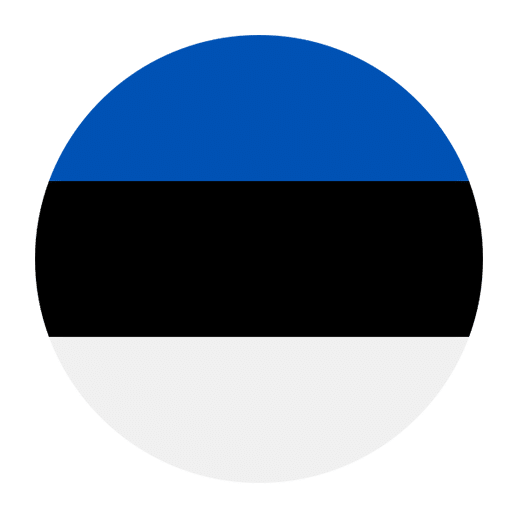In any foreign country, facing a medical emergency can be daunting. The language barrier can add an additional layer of stress to an already difficult situation. If you are traveling to Estonia or planning to stay for an extended period, knowing some essential Estonian words and phrases for medical emergencies can be extremely helpful. This article will provide you with a comprehensive list of these words and phrases to better prepare you for any unexpected health issues.
Basic Medical Terms
Understanding some basic medical terms can significantly ease communication with healthcare professionals. Here are a few essential words:
– **Arst**: Doctor
– **Õde**: Nurse
– **Apteek**: Pharmacy
– **Haigla**: Hospital
– **Kiirabi**: Ambulance
– **Ravim**: Medicine
– **Valu**: Pain
– **Tervis**: Health
– **Haigus**: Illness
– **Äda**: Emergency
Common Symptoms
Knowing how to describe your symptoms is crucial. Here are some common symptoms you might need to express:
– **Peavalu**: Headache
– **Köha**: Cough
– **Külmavärinad**: Chills
– **Palavik**: Fever
– **Iiveldus**: Nausea
– **Oksendamine**: Vomiting
– **Kõhuvalu**: Stomachache
– **Pearinglus**: Dizziness
– **Nohu**: Runny nose
– **Kurguvalu**: Sore throat
– **Valu**: Pain (you can specify the location, e.g., **seljavalu** for back pain)
Describing the Severity of Symptoms
Sometimes, you’ll need to explain how severe your symptoms are. Here are some useful words for that:
– **Kerge**: Mild
– **Mõõdukas**: Moderate
– **Tõsine**: Severe
– **Tugev**: Strong
– **Järsk**: Sudden
Medical Procedures and Tests
If you need to undergo medical procedures or tests, knowing these terms will be beneficial:
– **Vereanalüüs**: Blood test
– **Röntgen**: X-ray
– **Ultraheli**: Ultrasound
– **MRI**: MRI
– **CT skaneerimine**: CT scan
– **Vaktsiin**: Vaccine
– **Süst**: Injection
– **Operatsioon**: Surgery
Emergency Phrases
In an emergency, you need to communicate quickly and effectively. Here are some key phrases:
– **Mul on hädaolukord**: I have an emergency
– **Helistage kiirabisse**: Call an ambulance
– **Mul on valus**: I am in pain
– **Ma olen allergiline**: I am allergic
– **Ma vajan arsti**: I need a doctor
– **Kas te räägite inglise keelt?**: Do you speak English?
– **Ma tunnen end halvasti**: I feel unwell
– **Kas keegi saab mind aidata?**: Can someone help me?
Medications and Treatments
Discussing medications and treatments with healthcare providers is crucial. Here are some useful words:
– **Valuvaigisti**: Painkiller
– **Antibiootikum**: Antibiotic
– **Allergiavastane ravim**: Antihistamine
– **Kreem**: Cream
– **Tilgad**: Drops
– **Siirup**: Syrup
– **Tabletid**: Tablets
– **Retsept**: Prescription
– **Ilma retseptita**: Over-the-counter
Specific Conditions
If you have a specific medical condition, knowing the Estonian term for it can be incredibly helpful:
– **Diabeet**: Diabetes
– **Astma**: Asthma
– **Hüpertensioon**: Hypertension
– **Epilepsia**: Epilepsy
– **Allergia**: Allergy
– **Artriit**: Arthritis
– **Südamehaigus**: Heart disease
Communication with Healthcare Providers
To ensure you receive the best possible care, clear communication with healthcare providers is essential. Here are some phrases to help:
– **Ma võtan neid ravimeid**: I am taking these medications
– **Mul on see allergia**: I have this allergy
– **Mul on krooniline haigus**: I have a chronic condition
– **Millal ma saan tulemused?**: When will I get the results?
– **Kas ma pean tagasi tulema?**: Do I need to come back?
– **Mis on järgmised sammud?**: What are the next steps?
Pediatric Emergencies
If you are traveling with children, you may need to know some specific terms related to pediatric care:
– **Laps**: Child
– **Lastearst**: Pediatrician
– **Imik**: Infant
– **Lastehaigus**: Childhood illness
– **Vaktsineerimine**: Vaccination
– **Kuumaveetõbi**: Heat stroke
– **Vesine väljaheide**: Diarrhea
– **Kõrvavalu**: Earache
Useful Questions to Ask
Asking the right questions can provide you with the information you need. Here are some useful questions:
– **Kas see on tõsine?**: Is it serious?
– **Kui kaua see kestab?**: How long will it last?
– **Millised on kõrvaltoimed?**: What are the side effects?
– **Kas ma saan selle retseptita?**: Can I get this without a prescription?
– **Kas on midagi, mida ma peaksin vältima?**: Is there anything I should avoid?
– **Kuidas ma saan valu leevendada?**: How can I relieve the pain?
Understanding Instructions
Following medical instructions accurately is crucial for your recovery. Here are some common phrases you might hear:
– **Võtke seda ravimit kolm korda päevas**: Take this medication three times a day
– **Jääge voodisse**: Stay in bed
– **Joo palju vedelikku**: Drink plenty of fluids
– **Puhka palju**: Get plenty of rest
– **Vältige füüsilist pingutust**: Avoid physical exertion
– **Tule tagasi, kui sümptomid süvenevad**: Come back if the symptoms worsen
Emergency Contacts
Finally, it’s essential to know the emergency contact numbers in Estonia:
– **Kiirabi**: 112 (Ambulance)
– **Politsei**: 110 (Police)
– **Päästeamet**: 112 (Fire Department)
Practice Makes Perfect
Learning these essential Estonian words and phrases can make a significant difference during a medical emergency. Practice them regularly and try to use them in context to make them more familiar. You can also consider carrying a small phrasebook or using a translation app for additional support.
Conclusion
Facing a medical emergency in a foreign country can be incredibly stressful, but being prepared with the right vocabulary can make a world of difference. By familiarizing yourself with these essential Estonian words and phrases, you can ensure that you are better equipped to handle any medical situations that may arise during your time in Estonia. Remember, effective communication is key to receiving the best possible care, so take the time to learn and practice these terms. Safe travels and stay healthy!

